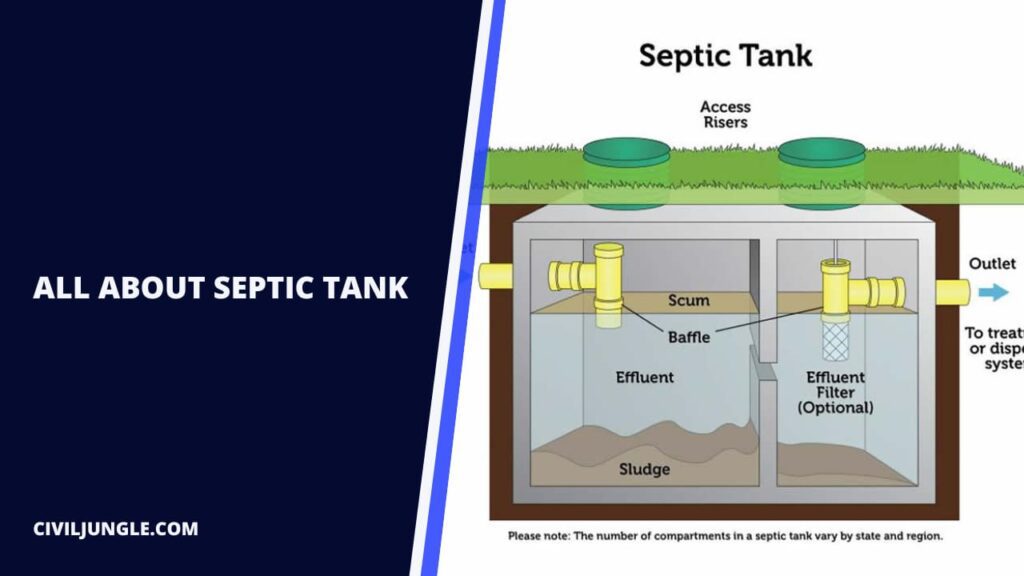If your septic tank is in need of a good cleaning, it’s important to find a qualified professional who can get the job done right. With so many options out there, it can be overwhelming to know who to trust. That’s where this guide comes in. By following the tips and recommendations provided, you’ll be able to easily identify a qualified septic tank professional who will ensure that your tank is cleaned and maintained effectively. Don’t settle for anything less than the best when it comes to your septic tank – let this guide be your ultimate resource.
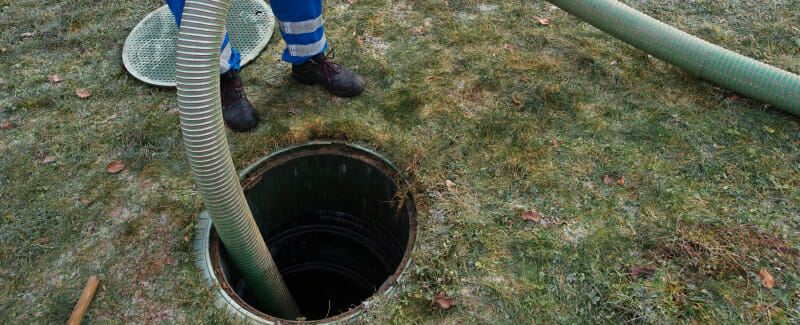
Signs that indicate the need for septic tank cleaning
Slow drains and toilets
One of the first signs that you may need to have your septic tank cleaned is if you notice slow drains and toilets in your home. If you find that water is taking longer than usual to drain, or if your toilets are not flushing as quickly as they should be, it could be an indication that your septic tank is full and in need of cleaning.
Bad odors
Another sign that your septic tank needs cleaning is the presence of bad odors around your property. If you notice a foul smell coming from your drains, toilets, or even from your yard, it could be a sign that there is a build-up of sewage and waste in your septic tank. This can lead to unpleasant odors lingering in and around your home, and it is a clear indication that your septic tank needs to be cleaned.
Pooling water in the yard
If you see pooling water in your yard, especially around the area where your septic tank is located, it could be a sign that your tank is full and in need of attention. When your septic tank becomes overloaded with waste, it can cause water to pool on the surface of your yard. This can be a health hazard and should be addressed as soon as possible by a professional septic tank cleaner.
Gurgling sounds in plumbing
If you hear gurgling sounds coming from your pipes whenever you use water, it is a sign that your septic tank may need cleaning. Gurgling sounds are caused by air bubbles escaping from your plumbing system, and they can indicate that your septic tank is not functioning properly. In order to prevent further damage and potential backups, it is important to have your septic tank cleaned if you notice these sounds.
Backed-up sewage
Perhaps the most obvious sign that your septic tank needs cleaning is if you have a backed-up sewage situation in your home. If you find that sewage is backing up into your toilets, sinks, or showers, it is a sign that your septic tank is full and unable to handle the waste. This is a serious problem that should be addressed immediately by a professional septic tank cleaner.
High water levels in the tank
If you have access to your septic tank and notice that the water levels inside are unusually high, it is a clear indication that your tank needs to be cleaned. High water levels mean that there is not enough space for the waste to properly settle and be broken down. This can lead to blockages, backups, and even damage to your septic system if left untreated. It is important to have a professional evaluate the situation and provide the necessary cleaning and maintenance.
Researching and finding septic tank professionals
Importance of hiring a qualified professional
When it comes to something as important as septic tank cleaning, it is essential to hire a qualified professional. Qualified professionals have the knowledge, experience, and equipment necessary to properly clean and maintain your septic tank. They will ensure that the job is done correctly, efficiently, and in compliance with local regulations. Hiring a qualified professional also minimizes the risk of further damage or issues with your septic system.
Seeking recommendations
One of the best ways to find a qualified septic tank professional is by seeking recommendations from friends, family, and neighbors. If someone you trust has recently had their septic tank cleaned, ask them about their experience with the professional they hired. Their feedback can be invaluable in helping you make an informed decision.
Checking online directories
Another way to find septic tank professionals in your area is by checking online directories. Many directories, such as Yelp or Angie’s List, provide reviews and ratings for local service providers, including septic tank professionals. Take the time to read through the reviews and see what previous customers have to say about their experiences. This can give you a good idea of the quality of service provided by different professionals.
Reading customer reviews
In addition to checking online directories, it is also helpful to read customer reviews on the websites or social media pages of septic tank professionals. Positive reviews from satisfied customers can indicate that the professional is reliable, trustworthy, and provides high-quality service. Conversely, if you come across multiple negative reviews or complaints, it may be best to avoid that professional and continue your search.
Contacting local health departments
Local health departments can be a valuable resource when searching for qualified septic tank professionals. They often have a list of licensed and certified professionals in your area who are qualified to perform septic tank cleaning and maintenance. Contact your local health department and inquire about any recommendations they may have. They can provide you with reputable professionals who meet the required standards.
Getting estimates
Once you have identified a few potential septic tank professionals, it is important to get estimates for the cost of the cleaning and maintenance services. Contact each professional and provide them with the necessary details about your septic system. Ask for a detailed breakdown of the services they will provide and the associated costs. This will help you compare the prices and choose the professional that offers the best value for your money.
Qualifications and certifications to look for
Licensed and insured professionals
When hiring a septic tank professional, it is crucial to ensure that they are licensed and insured. A valid license indicates that the professional has met the necessary requirements and has been trained to perform septic tank cleaning and maintenance. Insurance provides protection for both you and the professional in case of any accidents or damages that may occur during the cleaning process.
Certifications in septic system maintenance
Another qualification to look for is certifications in septic system maintenance. There are various organizations that offer certifications to professionals who have completed specific training programs and demonstrated their expertise in septic systems. These certifications are a testament to the professional’s knowledge and skills in providing proper septic tank cleaning and maintenance.
Membership in professional organizations
Membership in professional organizations, such as the National Onsite Wastewater Recycling Association (NOWRA), can also indicate the qualifications of a septic tank professional. These organizations often have strict membership requirements and promote ethical practices, continuing education, and best practices within the industry. Professionals who are members of these organizations are typically committed to providing high-quality service and staying up to date with industry standards.
Number of years in the industry
Experience in the septic tank industry is an important factor to consider when choosing a professional. A septic tank professional with many years of experience has likely encountered a wide range of issues and knows how to handle them effectively. They have likely established a good reputation in the industry and have gained the necessary experience to provide reliable and efficient septic tank cleaning services.
Experience with different types of septic tanks
Septic tanks come in different types, sizes, and designs. It is important to choose a professional who has experience working with the specific type of septic tank you have. Different tanks require different cleaning methods and techniques, and a professional who is familiar with your type of tank will be better equipped to provide the necessary cleaning and maintenance.
Interviewing potential septic tank professionals
Checking for proper equipment and resources
During the interview process, it is important to ask the septic tank professional about the equipment and resources they use for the cleaning process. They should have access to modern and well-maintained equipment that is specifically designed for septic tank cleaning. The professional should be able to explain the equipment and its functions confidently, ensuring that they are prepared to handle the job efficiently.
Asking about the cleaning process
In order to make an informed decision, it is essential to ask the potential septic tank professionals about their cleaning process. They should be able to explain the steps they will take to clean and maintain your septic tank. Look for professionals who prioritize thoroughness and adherence to industry standards in their cleaning process. A knowledgeable professional will be able to explain each step clearly and address any concerns or questions you may have.
Inquiring about disposal methods
Proper disposal of the waste removed from your septic tank is essential for protecting the environment and complying with regulations. Ask the septic tank professional about their disposal methods and ensure that they follow proper practices for waste disposal. They should be able to explain how they dispose of the waste responsibly, whether through treatment plants or approved disposal sites. Choosing a professional who prioritizes responsible waste management is crucial for environmental conservation.
Requesting references
Before making a final decision, it is important to request references from the potential septic tank professionals. Contact their previous clients and inquire about their experiences with the professional. Ask about the quality of service, professionalism, and overall satisfaction with the work performed. Speaking directly with previous clients can give you valuable insights and help you assess the reliability and competence of the professional.
Discussing pricing and payment options
Discussing pricing and payment options is an important aspect of the interview process. Ask the potential septic tank professionals for a detailed breakdown of the costs involved in the cleaning and maintenance services. Inquire about any additional fees or charges that may apply. Additionally, discuss the payment options available, such as payment plans or financing, to ensure that you are comfortable with the payment arrangements before committing to a professional.
Confirming availability and response times
Lastly, it is important to confirm the availability and response times of the potential septic tank professionals. Emergencies can happen, and having a professional who can respond promptly is crucial to prevent further damage or issues with your septic system. Ask about their availability for regular maintenance and any emergency services they offer. A reliable professional will be able to provide a clear schedule and assure you of their prompt response in case of emergencies.
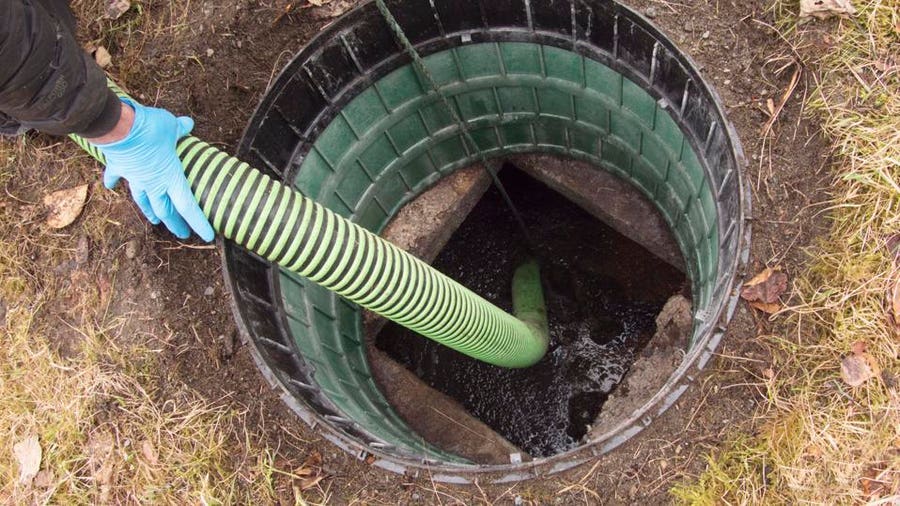
Understanding the septic tank cleaning process
Inspection of the tank and its components
The septic tank cleaning process typically begins with an inspection of the tank and its components. The professional will assess the condition of the tank, the presence of any cracks or leaks, and the functionality of the components such as the inlet and outlet pipes. This inspection helps identify any issues that may need attention during the cleaning process.
Pumping and removal of solid waste
Once the inspection is complete, the septic tank professional will proceed with pumping and removing the solid waste from the tank. They will use specialized equipment to pump out the waste and ensure that it is safely and properly disposed of. Removing the solid waste is important to prevent clogs and backups in your septic system.
Cleaning and rinsing the tank
After the solid waste has been removed, the septic tank will be thoroughly cleaned and rinsed. The professional will use water to flush out any remaining waste, debris, or sludge that may have accumulated in the tank. This cleaning process ensures that the tank is thoroughly cleaned and ready to function properly.
Checking for any damage or leaks
During the cleaning process, the septic tank professional will also inspect the tank for any damage or leaks. They will carefully examine the tank walls, the lid, and the components for any signs of cracks, deterioration, or leaks. Identifying and addressing any damage is essential to prevent further issues and ensure the longevity of your septic system.
Reinstalling tank components
Once the cleaning and inspection are complete, the septic tank professional will reinstall any removed components. This includes properly sealing the lid and ensuring that all connections are secure. Proper reinstallation of the tank components is important to prevent leaks and maintain the integrity of the septic system.
Recommendations for future maintenance
After the cleaning process is finished, the septic tank professional will provide recommendations for future maintenance. This may include advice on the frequency of pumping, the use of additives, and the proper care and usage of your septic system. Following these recommendations will help prolong the lifespan of your septic system and minimize the risk of future issues.
Factors that affect the cost of septic tank cleaning
Size of the tank
The size of your septic tank is one of the primary factors that will affect the cost of cleaning. Larger tanks require more time and resources to clean compared to smaller tanks. The professional will consider the size of your tank and factor it into the overall cost of the cleaning service.
Accessibility of the tank
The accessibility of your septic tank also plays a role in determining the cost of cleaning. If your tank is easily accessible, such as being located near the surface or having a convenient access point, it will be less time-consuming and less costly to clean. However, if your tank is buried deep or in a challenging location, the professional may need additional equipment or manpower, resulting in higher costs.
Amount of solid waste
The amount of solid waste in your septic tank will affect the cost of cleaning. If your tank has a significant build-up of solid waste, it will require more time and resources to pump and remove. The septic tank professional will assess the amount of solid waste in your tank and factor it into the overall cost of the cleaning service.
Condition of the tank
The condition of your septic tank can also impact the cost of cleaning. If there are cracks, leaks, or other issues that need repair or attention, it may involve additional work and materials, resulting in higher costs. A well-maintained tank in good condition will generally require less maintenance and may be more cost-effective to clean.
Distance from the professional’s location
The distance between your property and the professional’s location can also affect the cost of septic tank cleaning. If the professional needs to travel a considerable distance to reach your property, they may charge additional fees to cover transportation costs. Consider hiring a professional within a reasonable distance to minimize these additional charges.
Additional services required
In some cases, additional services may be required during the cleaning process. For example, if the professional discovers a blockage or a damaged component that needs repair, it may involve additional work and materials. These additional services will result in higher costs. The septic tank professional should provide a detailed breakdown of the costs for any additional services required before proceeding with the work.
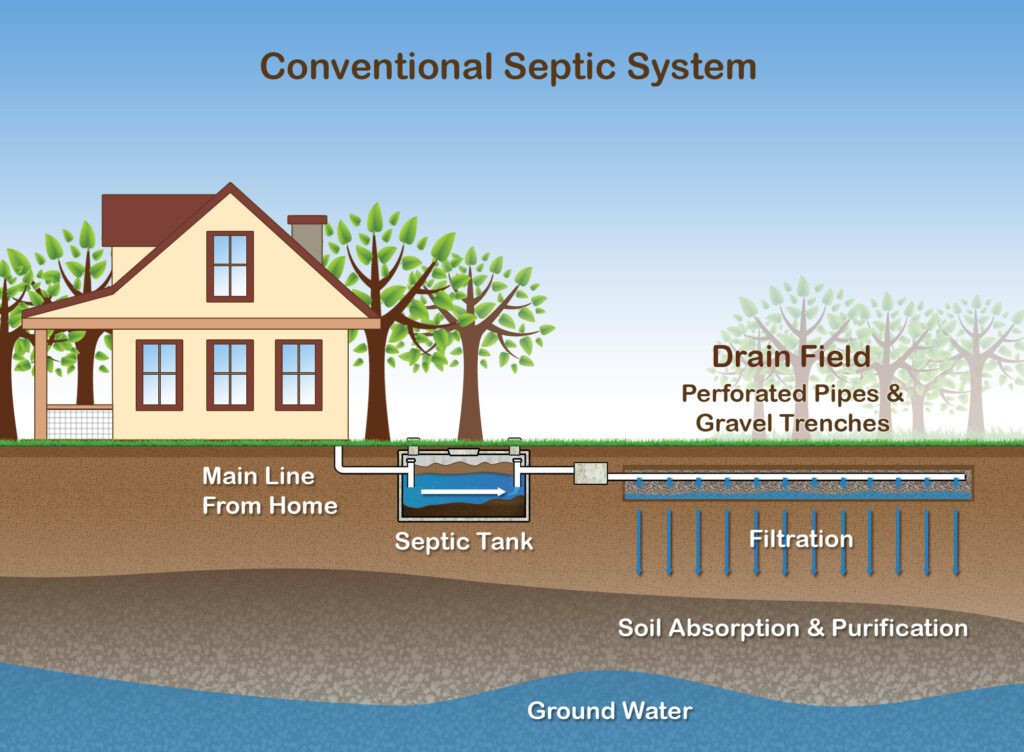
Importance of regular septic tank maintenance
Preventing costly repairs
Regular septic tank maintenance is essential for preventing costly repairs. By regularly cleaning and maintaining your septic tank, you can identify and address any issues early on. This helps prevent small problems from escalating into major repairs that can be expensive and time-consuming.
Avoiding sewage backups
Regular maintenance of your septic tank also helps avoid sewage backups in your home. A well-maintained septic tank is less likely to experience blockages, clogs, or backups. By keeping your tank clean and properly functioning, you can avoid the inconvenience and potential health hazards associated with sewage backups.
Protecting groundwater and environment
A properly maintained septic tank helps protect groundwater and the environment. Septic tanks are designed to treat and filter wastewater before it is released into the ground. Regular maintenance ensures that your septic system is working efficiently and effectively, preventing contaminants from seeping into the groundwater and surrounding environment.
Extending the lifespan of the septic system
Regular maintenance can significantly extend the lifespan of your septic system. By keeping your tank clean and well-maintained, you reduce the strain on the system and minimize the risk of premature failure. This allows your septic system to function as intended for a longer period of time, saving you money on expensive replacements and installations.
Complying with local regulations
Regular septic tank maintenance is often a requirement by local regulations and health departments. Failure to comply with these regulations can result in fines and penalties. By scheduling regular maintenance, you ensure that you are in compliance with the regulations in your area and avoid any legal consequences.
Warning signs of an unqualified septic tank professional
Lack of proper licensing and insurance
One of the warning signs of an unqualified septic tank professional is the lack of proper licensing and insurance. A qualified professional will have the necessary licenses and certifications required by local authorities to perform septic tank cleaning and maintenance. They will also carry liability insurance to protect you and your property in case of any accidents or damages that may occur during the cleaning process. Be cautious if a professional cannot provide proof of their license or insurance.
Unreliable or outdated equipment
Another warning sign is the use of unreliable or outdated equipment by the septic tank professional. A qualified professional will invest in modern and well-maintained equipment specifically designed for septic tank cleaning. Outdated or unreliable equipment can lead to incomplete or ineffective cleaning, potentially causing further issues with your septic system.
No references or positive customer reviews
If a septic tank professional cannot provide any references or positive customer reviews, it may be an indication that they are not experienced or reliable. Reputable professionals should have a track record of satisfied customers who can vouch for their quality of service. Lack of references or positive reviews can be a red flag, and it is advisable to consider alternative professionals with a proven track record.
Unprofessional behavior or lack of knowledge
Unprofessional behavior or a lack of knowledge about septic tank cleaning can be warning signs of an unqualified professional. Qualified professionals should demonstrate professionalism, including clear communication, punctuality, and respect for your property. They should also have extensive knowledge about septic systems and be able to answer any questions or concerns you may have. If a professional displays unprofessional behavior or seems uncertain about their knowledge and expertise, it is best to find someone else.
Inability to provide estimates or clear explanations
A septic tank professional should be able to provide clear estimates and explanations about the services they offer. If a professional cannot provide a detailed breakdown of the costs involved or explain the cleaning process and its benefits, it may indicate a lack of expertise or professionalism. Clear communication and transparency are important qualities to look for when hiring a septic tank professional.
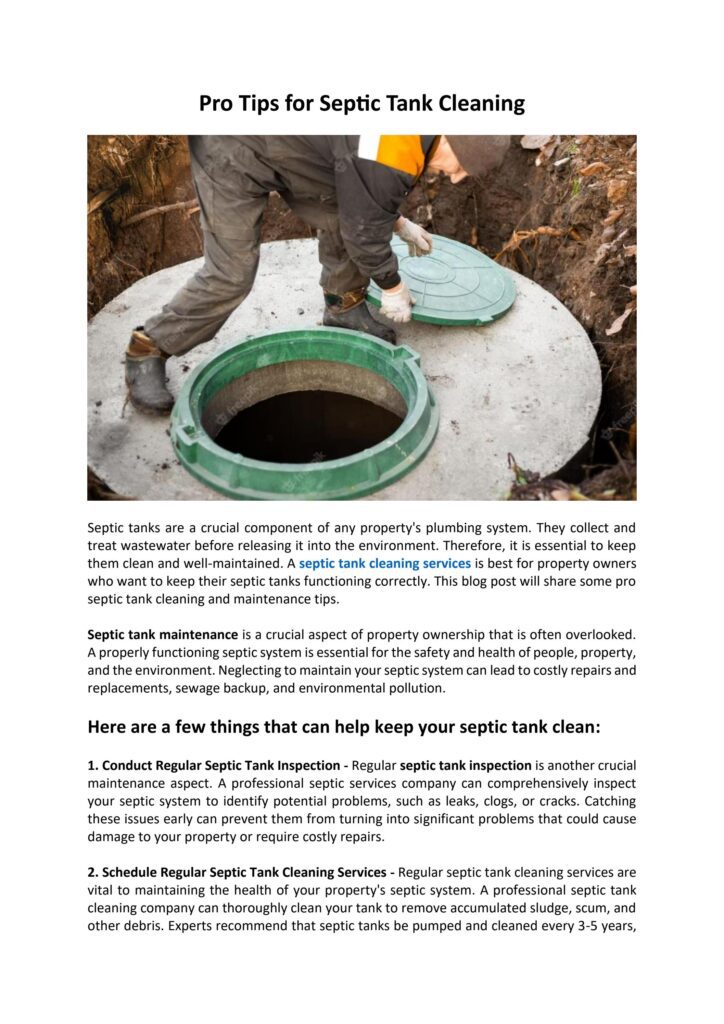
Tips for maintaining a healthy septic system
Conserving water
Conserving water is one of the simplest yet most effective ways to maintain a healthy septic system. Excessive water usage can overwhelm the system and lead to malfunction. Be mindful of your water usage by fixing any leaks, using water-efficient appliances, and practicing water-conservation habits such as taking shorter showers and only running the dishwasher and washing machine with full loads.
Avoiding flushing non-biodegradable items
To maintain a healthy septic system, it is important to avoid flushing non-biodegradable items down the toilet or drains. These items can clog the pipes and cause damage to the septic system. Avoid flushing items such as cotton swabs, diapers, wipes, tampons, or any other materials that are not designed to break down naturally in the system.
Properly disposing of household chemicals
Household chemicals, such as cleaning products and pesticides, can be harmful to your septic system if not disposed of properly. Avoid pouring chemicals down the drains or toilets as they can disrupt the natural balance of bacteria in the septic tank. Instead, dispose of these chemicals according to the instructions on their packaging or consider using environmentally friendly alternatives.
Regularly inspecting the system
Regularly inspecting your septic system is crucial for identifying any potential issues before they become major problems. Keep an eye out for any signs of leakage, odors, or pooling water in your yard. Additionally, inspect the components of your septic system, including the tank, pipes, and drainfield, for any signs of damage or deterioration. Early detection can save you from costly repairs and prolong the life of your septic system.
Pumping the tank as recommended
Pumping your septic tank at regular intervals is an important part of maintenance. The frequency of pumping depends on various factors, including the size of your tank and the number of occupants in your home. It is recommended to have your septic tank pumped every 3 to 5 years, but consult with a professional to determine the optimal pumping schedule for your specific system.
Educating household members about the system
Educating everyone in your household about the proper use and maintenance of your septic system is crucial for its longevity. Teach them about the items that should not be flushed or poured down the drains, and explain the importance of water conservation. By ensuring that everyone understands their role in maintaining a healthy septic system, you can prevent avoidable issues and promote long-term functionality.
Conclusion
Maintaining a healthy septic system is essential for the proper functioning of your home and the protection of the environment. Hiring a qualified septic tank professional for regular cleaning and maintenance is crucial to ensure that your system is in good condition and running efficiently. By recognizing the signs that indicate the need for septic tank cleaning, researching and finding qualified professionals, understanding the cleaning process, and following proper maintenance tips, you can avoid costly repairs, prevent backups, and extend the lifespan of your septic system. Take the necessary steps to choose a qualified septic tank professional and prioritize regular maintenance to keep your septic system in optimal condition.
